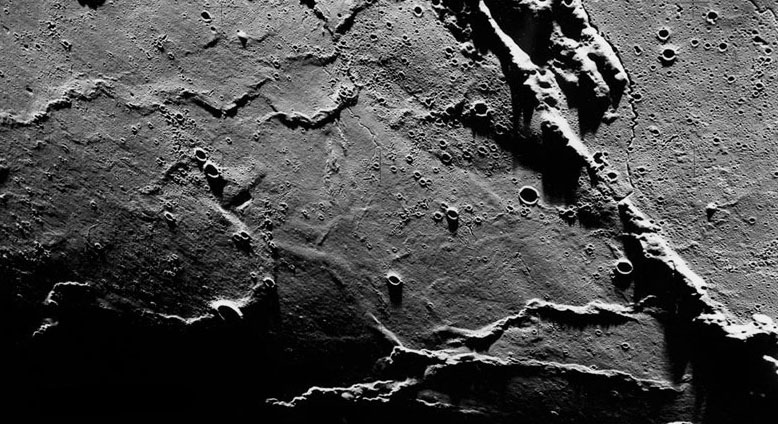Snake in the Mare

Explanation:
The high resolution Apollo Hasselblad Camera views of the mare are absolutely spectacular near the terminator. Here we see the southwestern end of the peculiar linear mountain range that parallels the sloping northern edge of the Aristarchus Plateau. This is an area of fresh-looking lava flows (see possible flow margins indicated by white lines and "f" in mouseover), mare ridges and narrow sinuous rilles too small to be seen from Earth. I estimate the widest rille is about 300 m across. A large bulge of older material - older because it has a rougher surface than the rest of the nearby mare - rests against the edge of the bone-like Agricola Mountains near the top of the image. The area along the bottom left of the image also looks rougher than average, but that is because it is right at the terminator. The very narrow rille arrowed near the center top appears to continue for tens of kilometers with some breaks, which may be where it continues as lava tubes. The small region of the rille near the letter "r" seems to be domed slightly and to be smoother (younger lava?) than other places on the image. If our Earth-based telescopes could resolve detail this small we would have despaired of ever mapping the Moon!
—
Chuck Wood
Related Links:
Rukl Atlas of the Moon chart 18
